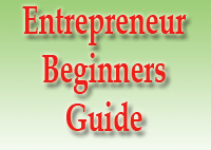Entrepreneur Beginners Guide
“You Aren’t Always the Best Person to Close a Deal”
Beauty awakens the soul to act. —Dante Alighieri, Italian poet
Excited to hit the pavement and to sell advertisements for my new magazine, I visited a local mom-and-pop store near my alma mater, Morehouse College. After my sales pitch, I waited to hear if the business owner would place an ad in my next issue. He didn’t buy an ad, but he did give me something much more valuable than an order: unfiltered advice on how to make him a customer. The owner, who was in his mid-forties and brutally honest, said, “Kevin, I love your magazine, and I think placing an ad in it would really help my business, but I will never buy from you. Send your editor here, and I’ll buy an ad from her every month!”
Chelsey, the editor of my magazine at the time, was one of the main reasons the magazine was so popular, and it wasn’t necessarily because she was a great editor. Every month, college-aged men with raging hormones would rush to pick up the latest issue of the magazine to see Chelsey’s beautiful picture on her editor’s page. Likewise, she had a large fan club of older men who were just as eager to see her picture. When the business owner asked me to send Chelsey to visit him, I just smiled because I knew that was the only thing I could do to convince him to buy an ad. I obliged.
Before this eye-opening experience, I thought my customers would buy ads primarily for logical reasons like great prices, a large circulation, or quality content. Never did I think that customers would buy ads for other, seemingly frivolous reasons. I was wrong and learned quickly to better understand and to assess a potential customer’s psyche, which gives clues on bow to close that person. In doing so, 1 had to come to the realization that in many cases, I, the CEO of the company, was not always the best person to close a deal. As in the case of this local business owner, some-times people would much rather buy from a future Miss USA, contestant (Chelsey) than an enterprising geek (me), no matter how logically sound the geek’s offer is.
Nowadays, I see myself as the leader of a team of superstars who can close just about anyone. Like the owner of a winning professional sports team, I have put together a group of outstanding people who can handle many different types of situations come game time. To increase the likelihood of a sale, we research our prospects and determine the best plan of action. For example, if a potential customer shows signs that she will respond better to a male, we send a male. In the same way that the Los Angeles Lakers coaching staff watches hours of film to determine player matchups, we find out- as much as we can about our prospects to decide who should go on the sales call. Our approach is tremendously effective and renders great results through increased profits.
Despite the proven results of this strategy, many entrepreneurs have a serious problem with it. They think like I thought. They mistakenly believe that we have a utopian free market in which buyers operate on logic alone. In other words, buyers don’t judge offers by the person making the offer; they can see past their own assumptions, stereotypes, impressions, and desires. Unfortunately, we are far from this point.
In a recent CNN feature Black in America: The New Promised Land, Silicon Valley, a multimillionaire entrepreneur of Indian descent ruffled some feathers with his candid advice. He encouraged young African American entrepreneurs to “get a white guy to be your front man.” The implications of his advice are certainly disappointing and sad, but I agree with him wholeheartedly. Ultimately, it’s about giving the merit of your offer the best chance possible. The entrepreneur’s job is not to reform the buyer. Instead, understand what makes the customer tick and adjust.
The best entrepreneurs know that being a CEO doesn’t make you the best person to present to investors, to close a sale, or to do a number of other tasks. Perhaps you don’t speak with passion or you have trouble communicating. In this case, you must be willing , and able to adjust to different situations to maximize your opportunities. As it relates to understanding your talents and gifts, More-house College alumnus Dr. Martin Luther King Jr. put it best in one of his sermons: “A Ford car trying to be a Cadillac- is absurd, but if a Ford will accept itself as a Ford, it can do many things that a Cadillac could never do: it can get in parking spaces that a Cadillac can never get in.” King finalizes his thought, saying, “The principle of self-acceptance is a basic principle in life.” I concur, and entrepreneurs who understand this principle in business are exponentially more successful.

